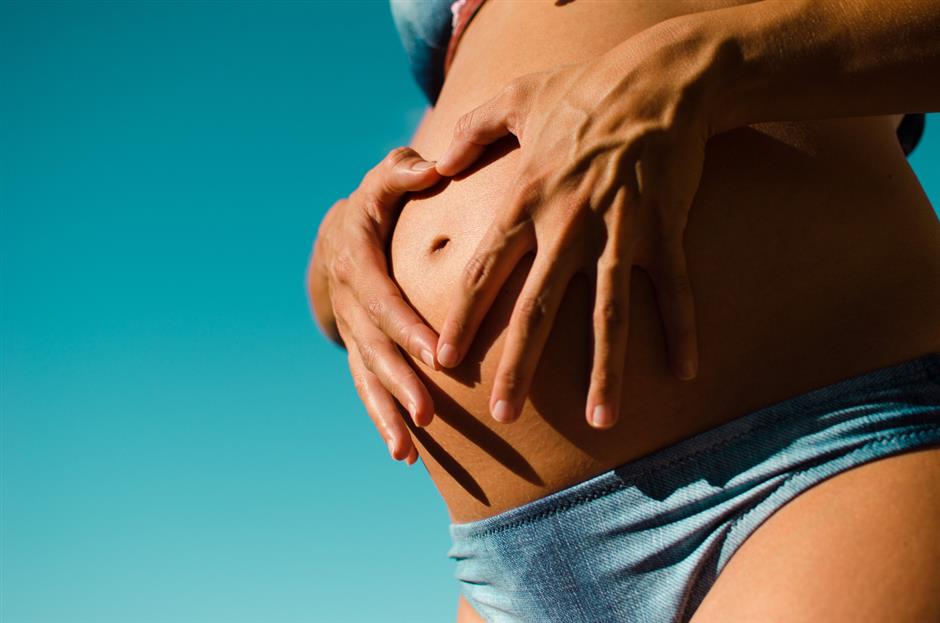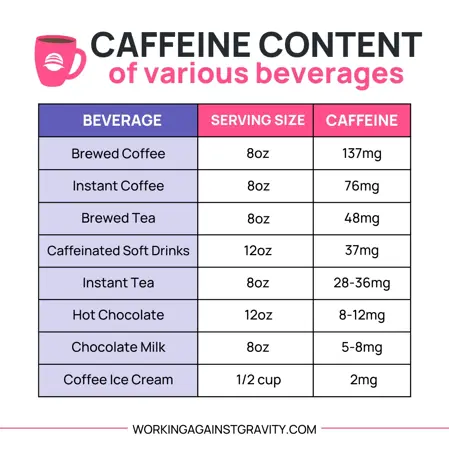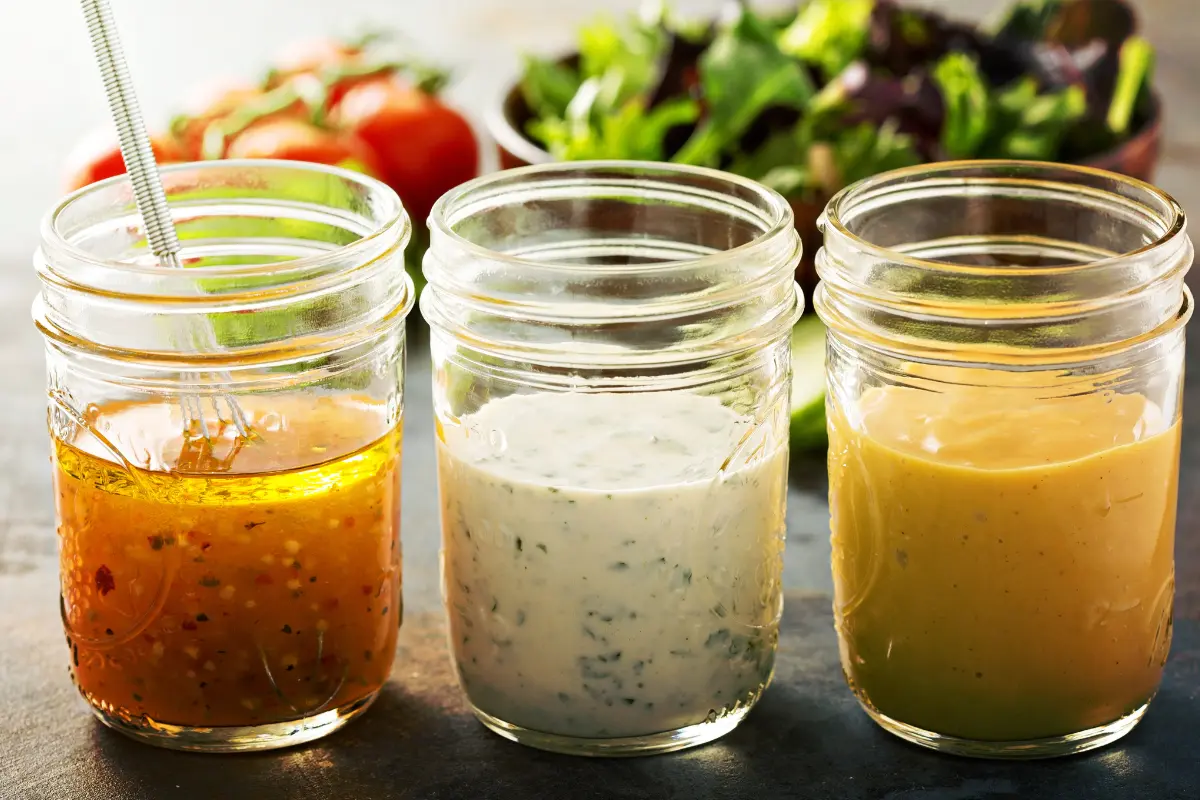
The internet is full of forums and ideas of what you “can” and “can’t” eat while pregnant.
It can be tricky to discern fact from fiction. Just like most things in the nutrition and health space, there isn’t a one size fits all answer, and today we're tackling some general considerations.
From there, a WAG coach can help you narrow down what feels right for you and your pregnancy.
Let’s break down some of the most commonly cautioned-against foods (and determine if the basis of caution is worth the hype).
Seafood During Pregnancy
Why is it a concern? High mercury intake and food poisoning.
Advertisement
What nutrients could I be missing? DHA, iodine, zinc, iron, vitamin B6, selenium, omega-3 fatty acids, vitamin B12, and glycine [1]. For a reminder about what some of these nutrients do in your body, check out our blog on micronutrients!
How can I consume seafood safely during pregnancy?
- Certain fish have a higher concentration of mercury and should be avoided. These fish include swordfish, shark, king mackerel, and tilefish [2].
- Seafood like cod, haddock, salmon, shrimp, and many other options are safe to eat during pregnancy if they are sourced responsibly. The seafood market is very tightly regulated so if you make sure to select fresh-caught, responsibly stored seafood from a reputable establishment, you can still consume seafood [1].
- Cooking food helps eliminate potential bacteria, which is why consuming raw seafood while pregnant is often discouraged. However, if raw seafood is wild-caught, stored correctly, and sourced responsibly, it can be eaten during pregnancy [1].
- Raw shellfish is responsible for 75% of food poisoning from seafood so we suggest avoiding it altogether [3].
Deli Meats During Pregnancy
Why are they a concern? Listeria.
What nutrients could I be missing? Deli meats can provide a good source of lean protein.
How can I consume deli meat safely during pregnancy?
Advertisement
- We love to recommend whole foods first, so if you’re craving turkey deli meat, try cooking turkey at home first. But it’s nice to know that if you do have a hankering for deli meats, FDA researchers estimate that only one in every 83,000 servings causes listeria [4].
- Trust your nose and throw away odd-smelling meat.
- Be smart about where you’re purchasing your deli meat (gas station versus meat from a local store) and eat within two to four days of purchasing.
- Heat your deli meat until it’s steaming to decrease pathogen exposure [1].
Runny Egg Yolks
Why are they a concern? Salmonella.
What nutrients could I be missing? Protein, choline, DHA, and iodine are all found in egg yolks [1].
How can I consume egg yolks safely during pregnancy?
- The odds of an egg containing salmonella are between 1/12,000 and 1/30,000 [5]. These odds decrease significantly when you purchase free-range organic eggs. So, much like seafood, it comes down to sourcing and knowing where your eggs are coming from.
- You can also eat eggs scrambled or over-hard to ensure they’re fully cooked.
Soft Cheese and Raw Milk
Why are they a concern? Listeria.
What nutrients could I be missing? Protein, calcium, zinc, phosphorus, magnesium, vitamin A, vitamin B2, and vitamin B12.
Advertisement
How can I consume soft cheese or raw milk safely during pregnancy?
- The FDA has estimated the odds of contracting listeria from soft cheese to be about 1 in 5 million [4].
- We recommend ensuring that your soft cheese is pasteurized and sourced from happy animals. Organic cheeses from grass-fed animals will be safer than conventionally raised animals.
- Heating cheese will help kill unwanted bacteria.
Ultimately, there is no concrete answer to guarantee which foods are determined to be safe or unsafe during pregnancy.
Nearly 22 percent of foodborne illnesses in the United States can be attributed to green leafy veggies, but the odds of reading a prenatal book that tells a pregnant woman to avoid salad are slim to none [7].
Working Against Gravity coaches have undergone extensive training to ensure they are ready to support women during pregnancy. Our coaches are also excellent sources of accountability and support when implementing OBGYN recommendations.
Other Important Food and Beverage Considerations During Pregnancy
Artificial Sweeteners During Pregnancy
Drinks, dressings, sauces, snacks, and even bread can contain artificial sweeteners. These man-made substitutions for natural sweeteners (like cane sugar, maple syrup, and honey) provide sweetness without the “extra” calories, which is why are so popular.
Advertisement
Why are they controversial?
Studies have linked artificial sweetener consumption with a higher instance of preterm delivery, predisposition to asthma, and allergic rhinitis for your little one [8,9]. For these reasons, we recommend avoiding artificial sweeteners during pregnancy.
What to look out for:
- Acesulfame Potassium (Sunnet and Sweet One)
- Aspartame (Nutrasweet, Equal, and many "zero-calorie"/"diet" drinks)
- Neotame (Sweetos)
- Saccharin (Sweet 'N Low, Sweetwin, and Sugar Twin)
- Sucralose (Splenda)
Caffeine
Experts have gone back and forth about recommendations for caffeine intake during pregnancy for many years. Current recommendations in the United States suggest no more than 200 mg of caffeine per day during pregnancy [9]. In Canada, the recommendation is no more than 300 mg per day [10]. For reference, an 8oz cup of drip coffee typically contains about 137 mg of caffeine [9].
Advertisement
Remember that caffeine is found in many places besides coffee and tea. Here are some other sources to be aware of:

Alcohol During Pregnancy
It is generally recommended that individuals abstain from alcohol use during pregnancy. However, this is a commonly debated topic. Alcohol is a known teratogen, meaning it has been shown to cause birth defects, which is why the consensus amongst healthcare providers is that it should be avoided.
The true issue is that while small amounts may be safe for some women, it’s impossible to know how much and how often is okay. Individual tolerance, metabolism, and genetics all play a role in how alcohol could potentially impact pregnancy and the developing baby.
Advertisement
A 2014 study found that amongst British women, those that consumed no more than 2 units of alcohol (about 6oz of wine) per week were more likely to have babies small for gestational age (SGA) in their first trimester and have preterm deliveries [11]. One of the study’s main conclusions is that the first trimester is the most vulnerable time for the fetus in regard to the effects of maternal alcohol consumption [11]. Additionally, alcohol has been shown to impact fetal brain development and, in turn, cognitive function [1].
Metabolizing alcohol utilizes large amounts of the body’s resources which are especially precious during pregnancy and would be better used for supporting the health of you and your baby.
Protein Supplements
There are times when opting for a high-quality protein shake may be beneficial in helping you reach an increased protein need, especially during times in your pregnancy when traditional protein options are unappealing. If this is the case, make sure your protein shake is free of…
- Artificial colors
- Artificial sweeteners
- Preservatives
- Little-to-no caffeine
From there, here are a few specific things to keep in mind:
Advertisement
Whey and casein: High-quality whey and casein are great options.
Plant-based shakes: If whey and casein don’t agree with you, you can opt for plant-based protein like pea protein. However, avoiding soy-based products may be best as soy is high in phytic acid. Phytic acid is a substance that may impair mineral and iodine absorption. Consult your OBYGYN with any questions you have.
Creatine: Creatine is one of the most frequently used and well-studied supplements among athletes and has a long track record of safety and efficacy. Because of its neuroprotective properties, there has been interest in using creatine in pregnancy to enhance fetal neural development [13]. Although human studies are limited it has been theorized that maternal creatine supplementation could support fetal growth, development, and health because babies are reliant on their mother’s creatine stores until late in pregnancy [13]. There is also some promising evidence that creatine supplementation could provide protective benefits for babies born prematurely or who are deprived of oxygen at birth [13].
Despite limited studies on the use of creatine during human pregnancies, animal studies have not shown it to be harmful, and as discussed above there may be some real benefits. If you would like to incorporate creatine into your supplement routine during pregnancy it’s a great idea to bring the studies highlighted here to your care provider and have a conversation about whether it is appropriate for you.
Branched-Chain Amino Acids (BCAAs): Data here is limited, but in general, supplementing with BCAAs during pregnancy is not recommended as excessive protein intake can increase the likelihood of Intrauterine Growth Restriction (IUGR) [1].
Advertisement
If you have questions about a protein powder it is best to consult your doctor and then your nutrition coach to ensure you’re picking a supplement that is right for you.
The Big Picture of Food Safety During Pregnancy
If there are foods on this list you’d rather avoid, that is totally fine! No matter what, it’s important to do some homework, find out where your foods are coming from and talk to your doctor. This way, you can ensure you’re not missing out on foods you love or foods that provide the essential vitamins and minerals for a happy, healthy pregnancy. A WAG coach would love to support you through this vital time.
References:
References:
- Nichols, L. (2018). Real food for pregnancy. (n.p): Lily Nichols.
- U.S. Food and Drug Administration (2014). Eating fish: what pregnant women should know. Retrieved from https://www.fda.gov/Food/ResourcesForYou/Consumers/ucm393070.htm
- Iwamoto, M., Ayers, T., Mahon, B.E., & Swerdlow, D.L. (2010). Epidemiology of seafood-associated infections in the United States. Clin Microbiol Rev, 23(2), 399-411. doi: 10.1128/CMR.00059-09
- Tam, C., Erebara, A., & Einarson, A. (2010). Food-borne illnesses during pregnancy. Can Fam Physician, 56(4), 341-343. Retrieved from https://www.ncbi.nlm.nih.gov/pmc/articles/PMC2860824/
- Ebel, E., & Schlosser, W. (2000). Estimating the annual fraction of eggs contaminated with salmonella enteritidis in the United States. Int J Food Microbiol, 61(1), 51-62. Retrieved from https://www.ncbi.nlm.nih.gov/pubmed/11028959
- Mie, A., Anderson, H.R., Gunnarsson, S., Kahl, J., Kesse-Guyot, E., Rembialkowska, E., ... Grandjean, P. (2017). Human health implications of organic food and organic agriculture: a comprehensive review. Environ Health, 16(1), 111. doi: 10.1186/s12940-017-0315-4.
- Painter, J.A., Hoekstra, R.M., Ayers, T., Tauxe, R.V., Braden, C.R., Anguloa, F.J., & Griffin, P.M. (2013). Attribution of foodborne illnesses, hospitalizations and deaths to food commodities by using outbreak data, united states, 1998-2008. Emerging Infectious Diseases, 19(3). DOI: 10.3201/eid1903.111866
- Khayat, S., Fanaei, H., & Ghanbarzehi, A. (2017). Minerals in Pregnancy and Lactation: A Review Article. Journal of Clinical and Diagnostic Research : JCDR, 11(9), QE01–QE05. http://doi.org/10.7860/JCDR/2017/28485.10626
Maslova, E., Strøm, M., Olsen, S. F., & Halldorsson, T. I. (2013). Consumption of Artificially-Sweetened Soft Drinks in Pregnancy and Risk of Child Asthma and Allergic Rhinitis. PLoS ONE, 8(2), e57261. http://doi.org/10.1371/journal.pone.0057261 - https://www.acog.org/Clinical-Guidance-and-Publications/Committee-Opinions/Committee-on-Obstetric-Practice/Moderate-Caffeine-Consumption-During-Pregnancy
- Morgan, S., Koren, G., & Bozzo, P. (2013). Is caffeine consumption safe during pregnancy? Canadian Family Physician, 59(4), 361–362.
- Nykjaer, C., Alwan, N. A., Greenwood, D. C., Simpson, N. A. B., Hay, A. W. M., White, K. L. M., & Cade, J. E. (2014). Maternal alcohol intake prior to and during pregnancy and risk of adverse birth outcomes: evidence from a British cohort. Journal of Epidemiology and Community Health, 68(6), 542–549. http://doi.org/10.1136/jech-2013-202934
- Marangoni, F., Cetin, I., Verduci, E., Canzone, G., Giovannini, M., Scollo, P., … Poli, A. (2016). Maternal Diet and Nutrient Requirements in Pregnancy and Breastfeeding. An Italian Consensus Document. Nutrients, 8(10), 629. http://doi.org/10.3390/nu8100629
- Kreider, R. B., Kalman, D. S., Antonio, J., Ziegenfuss, T. N., Wildman, R., Collins, R., … Lopez, H. L. (2017). International Society of Sports Nutrition position stand: safety and efficacy of creatine supplementation in exercise, sport, and medicine. Journal of the International Society of Sports Nutrition, 14, 18. http://doi.org/10.1186/s12970-017-0173-z
Schedule a Free Intro Call
Working Against Gravity has led the macro tracking and health space for over a decade. Our team doesn’t just understand the science of nutrition—we’ve spent years mastering the art of tailoring it to fit your life. That means no cookie-cutter plans, just real strategies that have worked for over 30,000 people.
Schedule a free call with our team to learn how working with a 1-on-1 WAG coach will help you reach your goals.



